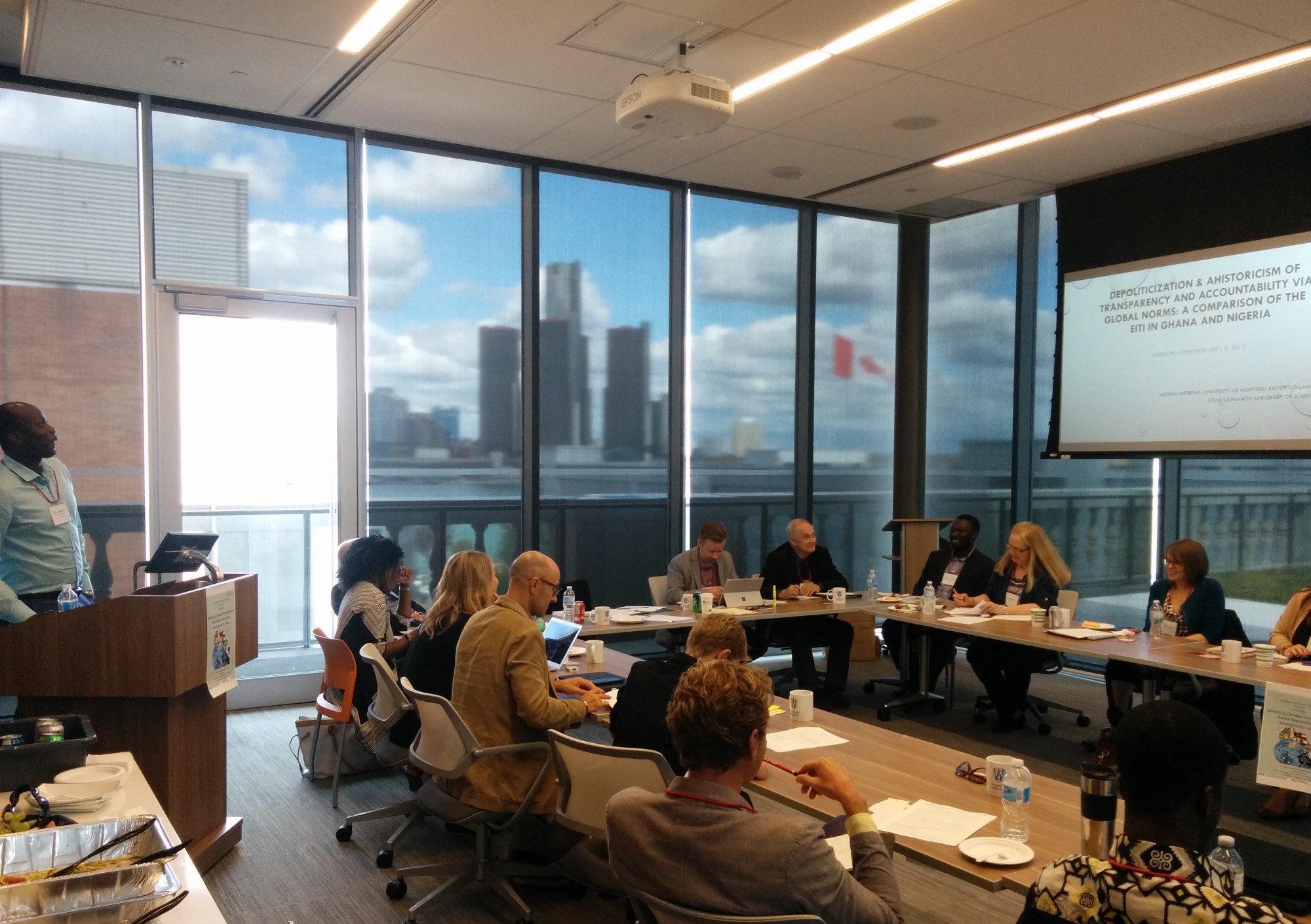Across the globe, at the local, national and international level as well as in everyday life, people are struggling for a better quality of life—socially, economically and politically. Global inequality, extreme poverty, and democratic governance are some of the most important issues humanity faces in the 21st century. In the Department of Political Science at the University of Windsor, our faculty members research these questions from a global policy perspective and with respect to their regional expertise. We study Canadian development policy, globalization, international trade, world hunger, food security, global conflict, industrial policy, and natural resource-based development. We have specialists on Eastern Europe, Central Asia, East Asia, the Middle East and Africa. Our research is also concerned with poverty, inequality, and the treatment of indigenous communities in Canada. Please find below information on current projects that our faculty members are pursuing.
On This Page:
Global Dynamics of Social Policy
Natural Resource-Based Development in Africa
Global Dynamics of Social Policy

The Collaborative Research Centre (CRC) "Global Dynamics of Social Policy hosted at the University of Bremen, Germany, represents a diverse and international network of social policy experts wanting to exchange ideas, knowledge, and expertise on the dynamics of social policies all over the world. In 2017, the CRC received funding from the German Research Foundation, initially for a period of four years, with the possibility of an extension for up to 12 years. To officially inaugurate the CRC, an International Conference on Global Dynamics of Social Policy will take place at the University of Bremen on October 25th & 26th, 2018.
About 70 scientists from 11 institutions are involved in the CRC which is divided into 15 subprojects. Dr. Elena Maltseva was invited to take part in Subproject B06 that focuses on social policy reforms in the post-Soviet region. The aim of this project is to analyze the reform discussions, the resulting legislation and policy outcomes across the post-Soviet region, paying particular attention to both external and internal influences affecting the process of post-Soviet social policy transformation. In October 2018, Dr. Maltseva will present her research on the politics of pension reform in post-Soviet states at the inaugural conference and take part in the workshop organized by Prof. Dr. Heiko Pleines, Head of the Department of Politics and Economics at the University of Bremen, to discuss the future plans of the research team.
The proposed research project promises to offer numerous opportunities for international research collaboration and new insights into the process of social policy transformation in the non-OECD region.
Natural Resource-Based Development in Africa

Dr. Jesse Salah Ovadia was awarded a Connection Grant from the Social Sciences and Humanities Research Council of Canada (SSHRC) in 2017 for a project titled ‘Mobilizing Canadian Knowledge on Natural Resource-Based Development in Africa’. Dr. Ovadia held a workshop in September 2017 with his co-convenors Dr. J. Andrew Grant of Queens University and Dr. Nathan Andrews of University of Northern British Columbia that brought some of Canada’s leading scholars on this topic along with emerging scholars and development practitioners to Windsor to discuss their research and avenues for collaboration on issues such as Responsibility and Governance at Local, National, and Global Levels, The Politics of Local Participation, and Inclusive Development, Land, Security, and Infrastructure. Working on a diverse set of countries including Cameroon, Democratic Republic of Congo, Ghana, Nigeria, Kenya, South Africa, Tanzania, Uganda, Zambia, and Zimbabwe, the authors are now working on a forthcoming edited volume to be published by University of Toronto Press.

